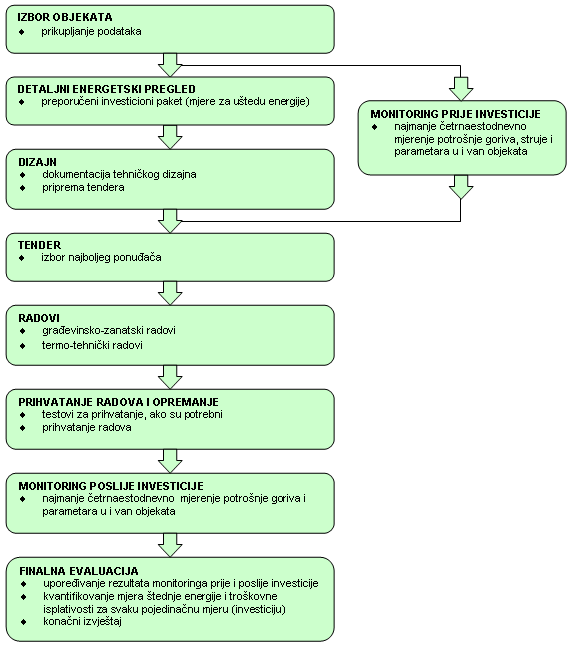The Government of Montenegro has received a loan from the International Bank for Reconstruction and Development (IBRD) in the amount of 6.5 million euros for implementation of the first phase of Montenegro Energy Efficiency Project (MEEP). Funds were used for financing the works related to the implementation of energy efficiency measures in six healthcare buildings and nine educational buildings. The project was implemented from February 2009 to 20 December 2014. Ministry of Health was responsible for implementation of the project in healthcare buildings, the Ministry of Education was responsible for implementation of the project in educational buildings while the Ministry of Economy/Directorate for Energy Efficiency was responsible for coordination of the project and for providing assistance to the Ministry of Health and the Ministry of Education.
Having in mind the results achieved under the MEEP, the Government of Montenegro has decided to take a new loan in order to continue with the implementation of the project. Therefore, International Bank for Reconstruction and Development has approved a loan to the Government of Montenegro in the amount of 5 million euros in order to apply the energy efficiency measures in 12-14 healthcare buildings. Second phase of MEEP was launched in April 2014 and it will last until 30 March 2017. Ministry of Health is competent for the implementation of the project in healthcare buildings and the Ministry od Economy/Directorate for Energy Efficiency is responsible for coordination of the project and for providing assistance to the Ministry of Health.
Implementation of energy efficiency measures is financed under MEEP. Measures relate primarily to: 1) improvement of system for heating and preparation of sanitary water, 2) improvement of energy performance of building envelope and 3) improvement of interior lighting.
Implementation of MEEP is defined in the terms of reference (ToR). Work on the building begins with preparation of a detailed energy audit that should indicate potential opportunities for energy saving. Based on the results from detailed energy audit, project documentation is prepared, which is a basis for preparation of the tender document for procurement of goods and execution of works. Tender document is published and the most advantageous contractor is selected, in accordance with the procedures of the World Bank. The contractor procures the required material and equipment and executes works on the building. Technical and social monitoring and evaluation are conducted before and after the works, in order to show energy consumption and level of comfort before and after the investment, in order to justify invested funds and in order to use the results from the research for promotion and education of the public on energy efficiency measures.

